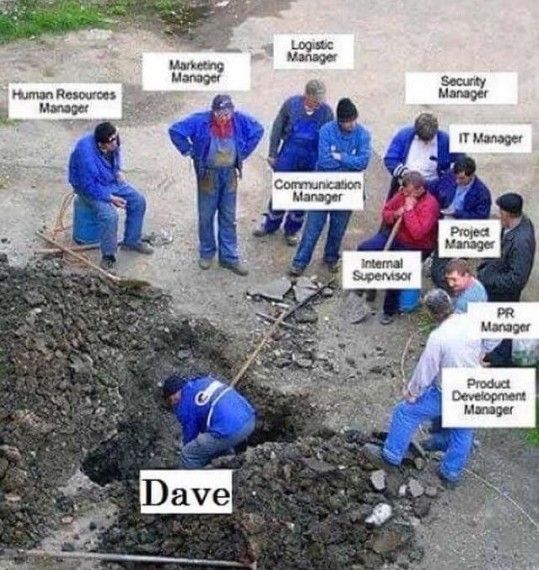By William Dekker
It may sound cliché to say that within a few decades, a surge in the number of young people in the continent will make Africa’s labour force the largest in the world. It is also a commonplace remark that the sizeable gap between the number of employment-seeking youth and the limited opportunities available to them means that they will still face challenges in finding formal employment, thereby widening the corridor to poverty.
Several studies attribute the ever-increasing number of unemployed youths in sub-Saharan Africa to a job-skills mismatch. It is reported that skills being acquired by today’s youth are not adequately matched with the needs of the marketplace. As a result, employment opportunities exist but cannot be filled because there is a shortage of workers in certain competencies. The blue-collar industry makes for a classic case.
According to the 2015- 2016 Youth Think Tank Report by Mastercard Foundation, many young people across the region recognize the mismatch between the skills gained from formal education and those needed to find work. As a result, graduates of the formal education system often invest additional time volunteering or pursuing technical and vocational training, in order to gain the practical skills needed to find a job in either the private or public sector or even to start their own businesses.
One therefore may wonder why a young person would go through the pain of a four-year degree course, knowing too well it will lead to no employment. Why wouldn’t such a person act smart by directly pursuing technical or vocational training at the earliest opportunity to avoid wastage of time, money, and expectations? Perhaps it all boils down to perception.
Just like every young person in my generation (millennial – yes, you got that right), I grew up under the precepts that white-collar jobs are nature’s reward for hard work and higher intellectual competence. I was made to believe that for a better salary and social standing, I needed to understand double-entry balance sheets, the dependency inversion principle, the law of macro-economic control, sterile compounding, the four pillars of democracy, and molar entropy tables. College degrees and their affiliated career paths were hailed as the hallmark of success while technical and vocational trainings were shunned as a last resort for academic under-achievers.
“When you grow up, I want you to become a banker, a doctor, a pilot, an engineer or at the very least, a lawyer,” said our baby boomer parents, whose daily bread was earned from skilled labour – which they later turned us against. How ironical! The society meanwhile passed subliminal messages against blue-collar jobs – in books, television, career forums, and conferences, etc. I still recall Mike Rowe’s narration on the ‘Dirty Jobs’ TV series: “CLOSE YOUR EYES AND PICTURE A PLUMBER. IS HE 300 POUNDS? CAN YOU SEE HIS BUTT CRACK? I BET YOU CAN.”
With this systemic brainwashing, we have grown to eschew skilled labour in the absence of alternatives. While the job market hungers for plumbers, carpenters, electrical works experts, and mechanics, we still wear low-priced suits to compete for low-end white-collar jobs whose compensation is comparatively lower. As South Africa imports artisans from the Middle East and India to help put up facilities for the World Cup due to severe shortage of artisan skills in the region, our ego remains inclined to an office desk, a water dispenser and tiled floor – an office job that our society has glorified over time.
There is a need for a complete overhaul of mindsets and attitudes to correct the long-twisted concept that looks down on an honest day’s work, whether blue-collar or skilled-labour. Beyond the ‘youth empowerment’ programmes that work towards addressing the skills gap, there is a greater need to target young people’s way of thinking – a strategy to change perceptions. Otherwise, it will be counterproductive to continue offering vocational training, agricultural upskilling, and entrepreneurial mentorship to a population that is shy to use such knowledge due to their fear of what the society thinks about their work.
We need a strategy that pierces the foundations of education and trickles up with constant messaging that there is nothing to be ashamed of if you work with your hands. This change – which requires a multi-faceted approach – is important for sub-Saharan Africa countries to balance their job market and solve the problem of insufficient employment for college/university graduates.
Moreover, to eliminate the perception that today’s education system is geared towards educating white-collar workers only, there’s a need to invest in modern Technical and Vocational Education and Training (TVET) institutions that meet the needs of today’s changing economic and social contexts. Most important, we must work towards eradicating the perception that TVETs are a last resort for academic failures. Would it hurt if we renamed the TVET to ‘Universities of Applied Sciences’ just like it has been done in Switzerland, Netherlands, Italy, Austria, and other countries? This change in nomenclature, though trivial, would be fundamental to the success of the progress we seek.
It is no secret – neither is it a rant – that to a greater extent, our job hiring system tends to favour paper qualification at the expense of practical skills. This already discourages the young people who genuinely desire to address their skills mismatch through informal trainings and apprenticeship. Perhaps we need a process of equating skills and recognizing informal qualification through certification. Maybe, just maybe, it will work.
Another important factor in this pursuit for change is the compensation for skilled labour. The salaries and wages need to reflect the real value of blue-collar jobs. Remember the story of Dave? Well, it is a hypothetical tale (yet mirrors real-world scenarios) where Dave, an employee of a mining firm, is the only guy who does the daily digging. However, Dave has a series of seniors above him: Internal Supervisor, Project Manager, Logistics Manager, PR Manager, Marketing Manager, HR Manager, IT Manager, Security Manager, Communication Manager, and Product Development Manager – all earning better salaries, allowances and complimentary perks – resulting from Dave’s work. Would wisdom dictate otherwise? Perhaps Dave deserves a better pay, not only for his motivation, but to guarantee the quality of his work, and thus guarantee the salaries for all those “managing” Dave.
Finally, it would be imprecise to assert that young people – vastly millennials – are not doing enough to help themselves. Or are lazy. For this group that grew up observing a world of work that is no longer applicable, it is difficult to figure out how to go about a job market whose demands and expectations have changed drastically. Yes: we need to help bridge the skills gap, but above all, we need to inculcate in young people a mindset that accentuates skilling at the earliest opportunity instead of dreaming of a white-collar that’s far from reality.
Dekker William is a Strategic Communication Specialist. Email-convo@williamdekker.com






